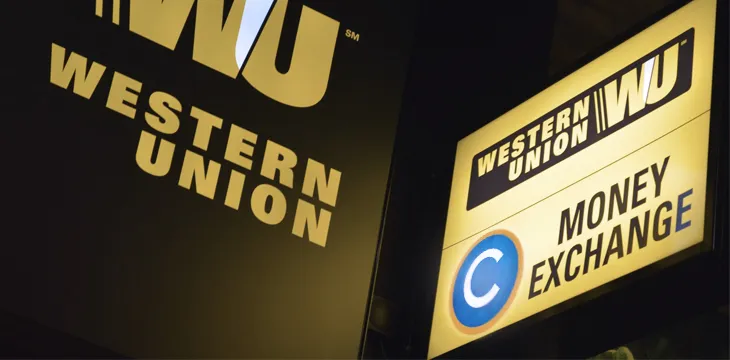|
Getting your Trinity Audio player ready...
|
It was not long ago that Western Union was making it clear that they would not be allowing cryptocurrency transfers as an option available to consumers. However, that does not mean that the world’s largest financial transfer services company is not looking to increase the ability of users to transfer money, and that looks to be the case as they made a deal with Coins.ph, a cryptocurrency service in the Philippines, to allow users to receive transfers into their wallets through the use of it’s blockchain platform.
According to a report on the Western Union website, the two companies have reached an agreement to allow its five million customers to transfer or receive money, both internationally and domestically, within the Philippines using the blockchain platform. This clearly demonstrates that the financial services company is looking for additional customers while also ensuring optimal security-related transfers.
This unique agreement will allow Filipinos the opportunity to receive or hold international money transfers that were initiated using Western Union’s digital network. This is a big boon for people within the Southeast Asian nation as nearly 10 million residents work overseas, and they are looking for an outlet to be able to send money back to their families. This agreement allows them to do just that.
It is estimated that $2.7 billion had been transferred into the Philippines in July 2018 alone. With a 3% growth expected each year, this should give Western Union a golden opportunity to earn a significant amount of revenue on transfer fees alone.
While Western Union seemed adamant that they would not involve themselves with transfers related to digital currencies, partnering with Coins.ph seems to fly in the face of that policy. Their willingness to accept transfers and exchanges of cryptocurrencies seems like a good reason for Western Union to reverse their previously stated policy.
Customers looking to use the transfer service to send currency into the country are encouraged to check with Bangko Sentral ng Pilipinas as to specific regulations regarding the use of Western Union. At this time, it is already expected that users will be required to provide a valid ID and complete a verification form as to how they specifically know the person transferring funds into their account or to the account of the person they are transferring funds to.

 07-03-2025
07-03-2025 





